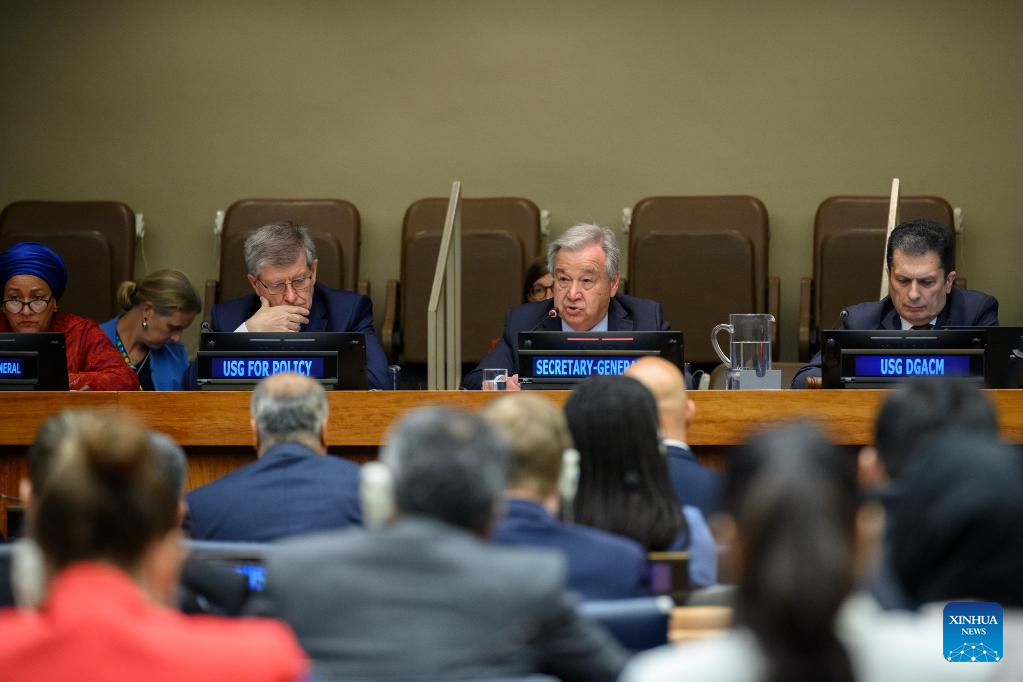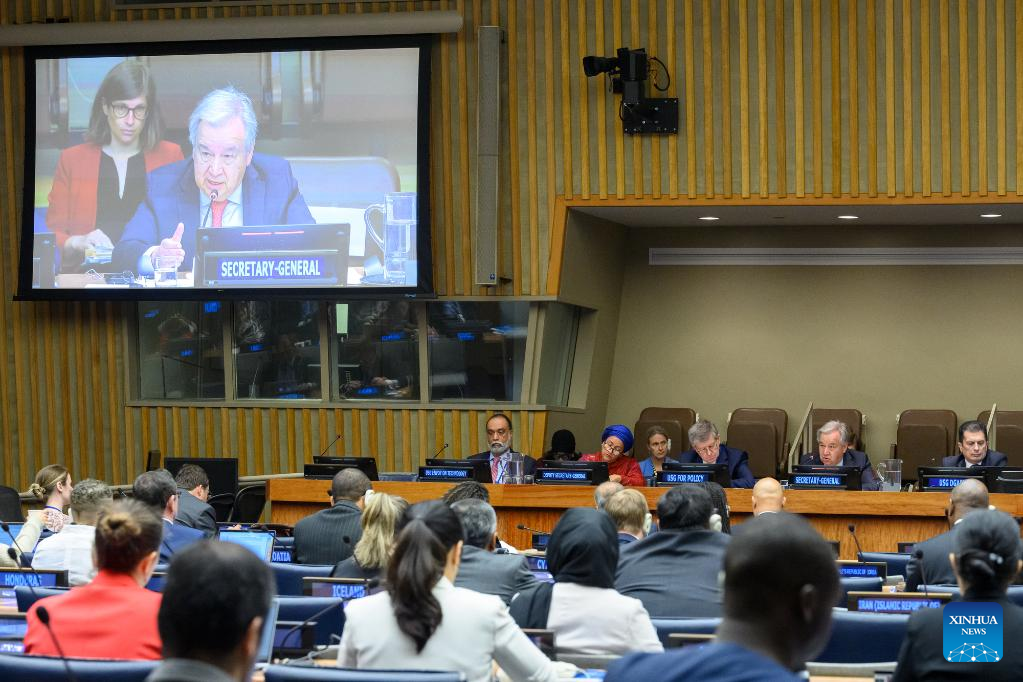UN chief asks countries to look beyond GDP as measurement of economic progress

UN Secretary-General Antonio Guterres (2nd R at the dais) speaks at the launch of three policy briefs under Our Common Agenda at the UN headquarters in New York, on June 5, 2023. Guterres on Monday urged member states to move toward universal and comprehensive measurements to complement gross domestic product (GDP) as a metric for economic progress. (Loey Felipe/UN Photo/Handout via Xinhua)
UNITED NATIONS, June 5 (Xinhua) -- UN Secretary-General Antonio Guterres on Monday urged member states to move toward universal and comprehensive measurements to complement gross domestic product (GDP) as a metric for economic progress.
GDP is the most widely used metric for a country's economic progress. It has become a proxy for wealth creation and development progress. It plays a part in evaluating countries and in allocating development resources, said Guterres in a presentation of his policy brief.
"It will continue to be an important metric. But there is a growing recognition that GDP overlooks human activities that sustain life and contribute to well-being, while placing disproportionate value on those that damage us and deplete our planet," he told member states.
GDP ignores or obscures the complexity of sustainable development. Deforestation, overfishing and the mining and burning of fossil fuels all increase GDP. Yet GDP takes no account of environmental sustainability, unpaid care work, and the negative impact on people and societies of many economic activities, he said.
"Human progress depends on many factors, from levels of poverty and hunger to inequality and social cohesion, and vulnerability to climate breakdown and other shocks," he said.
Some countries may have a relatively high GDP. But due to special circumstances -- for example, small island developing states and landlocked developing countries -- they may be at increased risk from economic shocks. Conversely, some countries with lower GDP may be more resilient to shocks because of a strong social contract, or a geographic location that protects them from the worst impacts of climate chaos, he said.
This policy brief proposes a path toward complementary metrics that more accurately reflect what humans value, said Guterres.
First, it proposes that member states make a political commitment to a conceptual framework that accurately values what matters for people, the planet, and the future.
This framework should be designed to achieve three main outcomes: a focus on well-being and agency, respect for life and the planet, and reduced inequalities.
Second, the brief calls for a technical process to develop metrics to inform this framework. It proposes that an independent high-level expert group should produce a dashboard of key alternative indicators by March 2024, he said. "We need a broader set of indicators to monitor and analyze progress and recognize trade-offs and consequences."
Third, the policy brief calls for a massive upgrading of support to countries so that they can develop the data capacity needed to make new metrics operational. This will bring efforts to move beyond GDP down to the country level and improve monitoring of progress on the Sustainable Development Goals, said Guterres.
On Monday, he also presented policy briefs on reforms of the international financial architecture and on a Global Digital Compact.

UN Secretary-General Antonio Guterres (2nd R at the dais and on the screen) speaks at the launch of three policy briefs under Our Common Agenda at the UN headquarters in New York, on June 5, 2023. Guterres on Monday urged member states to move toward universal and comprehensive measurements to complement gross domestic product (GDP) as a metric for economic progress. (Loey Felipe/UN Photo/Handout via Xinhua)
Photos
Related Stories
- Despite fighting during shaky ceasefire, humanitarians deliver truckloads of aid: UN
- UN appeals for sustainable funding for agency supporting Palestine refugees
- Trinidad and Tobago diplomat elected new president of UN General Assembly
- UN chief calls for effective governance of outer space
- Interview: UN senior official commends China's contributions to UN peacekeeping operations
Copyright © 2023 People's Daily Online. All Rights Reserved.









